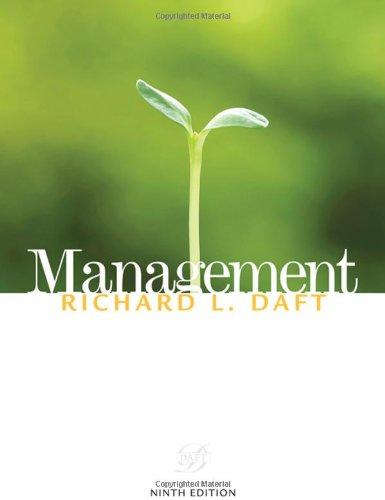When Brian Durkee shows up at Numi Organic Tea every day to work as the director of
Question:
When Brian Durkee shows up at Numi Organic Tea every day to work as the director of operations, he’s on a mission to make Numi a worldwide leader in sustainable supply chain management—and he gets right to work. Setting up and maintaining an efficient enterprise resource planning (ERP) system turned out to be much easier than converting Chinese suppliers to profoundly different farming methods and ways of doing business.
Numi was initially run on Excel spreadsheets and QuickBooks, which was hard to imagine after walking through Numi’s box-filled distribution center in Oakland, California. Durkee pointed out that those are tools used by most start-up companies. Numi had just begun to implement an ERP system with integrated inventory management and accounting when Durkee joined the company. He’s still in awe of what the system can do. “We’re managing our inventories in multiple countries through the same software program. All we do now is simply go into the system and push a button to say we want to make a particular product, and the system pulls all the lots and materials for us and allocates the inventory.” It’s that simple!
Durkee can calculate the inventory’s value and cost of goods at any time, too. “The enhancements we’ve made in our technology have helped us in tremendous ways. It has helped reduce costs, improve customer service, and most importantly, it has helped us manage our business more efficiently.” With clients like Costco, Target, and Safeway, quality and efficiency are essential. The system also keeps everyone working on the same page, because it provides a clear, real-time picture of what’s happening.
Although just-in-time (JIT) inventory sounds great, it’s not possible for Numi. Because its teas are grown by carefully chosen suppliers who adhere to Numi’s standards for organics and fair trade, Durkee can’t simply pick up the phone to order more tea or ask his suppliers to grow it instantaneously. The concept of a raw materials inventory doesn’t really apply to Numi either, because tea, its raw material, always requires a labor investment. To effectively manage his inventory, Durkee uses sales forecasts to make plans for tea production. JIT doesn’t work for its specialty bamboo packaging either because the boxes are handmade. Big changes in forecasts are difficult to address given these constraints. Luckily, tea leaves aren’t perishable once dried and packaged, so Numi can confidently build up its finished goods inventory, knowing the products will sell sooner rather than later.
The people who grow and package Numi tea are a vital part of the supply chain and the operation’s technical core. Durkee said the best part of his job is working with supply partners to improve working conditions. And although Numi tea is grown all over the world, its partners in China have the most trouble comprehending Numi’s fair-trade and organic practices. No matter how many times Durkee asked the owner of the packaging plant in China to install air conditioning for the workers, the owner couldn’t understand Durkee’s assertion that 120 degree temperatures constitute inhumane conditions. Ultimately, Durkee lied and said the hot temperatures affected the quality of the tea. Within two days, the factory was fully air-conditioned. Durkee has also been working with tea suppliers to change the conditions for workers who have historically lived on-site in dorm-size rooms with 10 or 12 people. Numi will not partner with anyone who does not comply with the company’s standards.
Numi is redefining and expanding the ways companies bring value and quality to the value chain. Although Numi doesn’t practice lean manufacturing per se, ongoing efforts to make its supply chain more sustainable reduce waste on many levels—energy, natural resources, and packaging materials. In the eyes of Numi customers, organic and fair-trade products possess more value. They also view organically grown products as safer, healthier, and of higher quality than non-organics. Anyone fi nding it difficult to quantify value Numi-style, should eavesdrop on Numi customers as they chat enthusiastically on Numi’s blog.
Discussion Questions
1. What challenges are inherent in an agricultural production process?
2. How does depending on a big finished-goods inventory make Numi vulnerable?
3. Beyond the impact on workers, how might fair trade practices affect product quality and costs?
Step by Step Answer:






